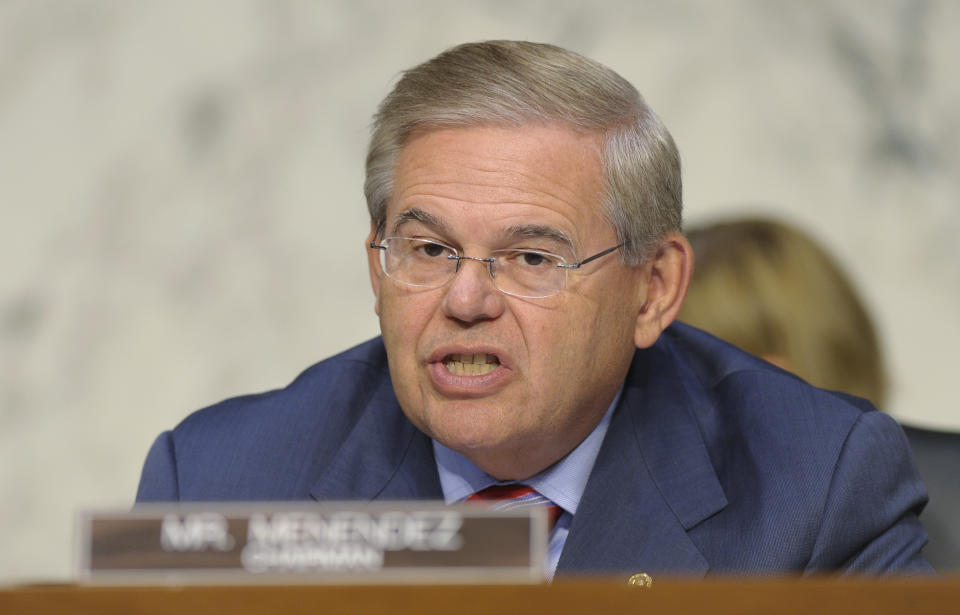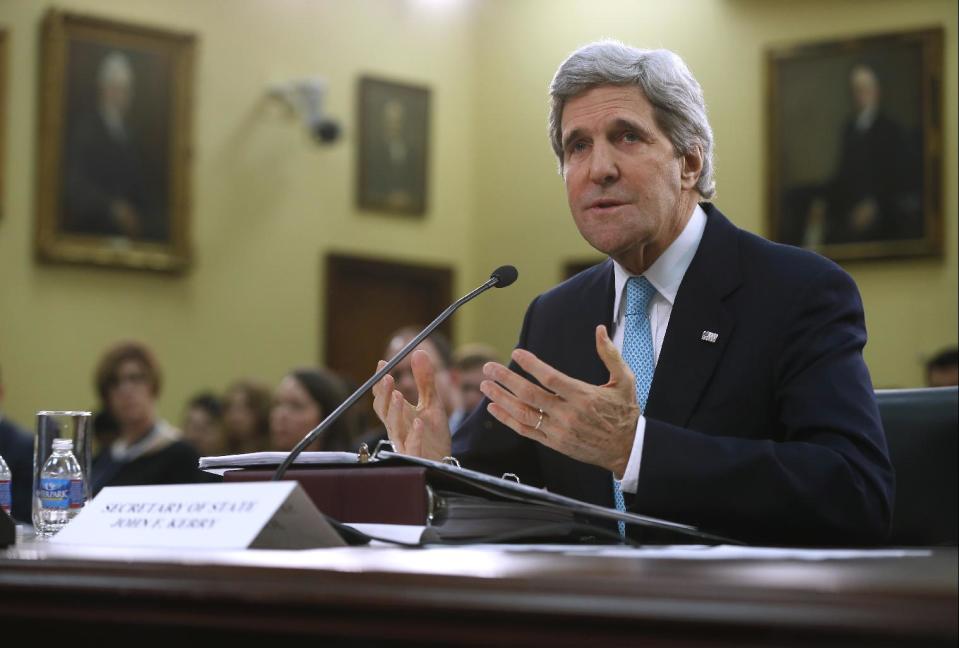US Senate bill proposes tough sanctions on Russia
WASHINGTON (AP) — Congress will weigh some of the most significant U.S. sanctions on Russia since the end of the Cold War in a bid to pressure President Vladimir Putin to pull Russian troops out of Crimea, according to a copy of a new Senate bill obtained by The Associated Press.
The legislation authorizes the Obama administration to impose economic penalties on Russian officials complicit in Ukrainian corruption or anyone responsible for Moscow's military takeover of Ukraine. The bill stops short of going after Russian banks or energy companies as some legislators proposed, giving Secretary of State John Kerry more leeway ahead of diplomatic talks with his Russian counterpart in Europe later this week.
Testifying before a House Appropriations subcommittee, Kerry said he'd travel Thursday to London for discussions with Russian Foreign Minister Sergey Lavrov. While Washington has no desire to isolate Russia internationally, Kerry said, "We will do what we have to do if Russia cannot find a way to make the right choices here."
"Our interest is in protecting the sovereignty and the independence and the territorial integrity of Ukraine," said Kerry, who has unsuccessfully sought for more than a week to broker a meeting between Russian and Ukrainian diplomats. He said he was preparing to present Moscow "a series of options" to defuse the crisis.
The Senate Foreign Relations Committee plans a vote on its bill Wednesday afternoon.
"Putin has miscalculated by playing a game of Russian roulette with the international community, but we refuse to blink and will never accept this violation of international law," said Sen. Bob Menendez, a Democrat and the chairman of the Foreign Relations panel, who introduced the legislation.
Beyond sanctions, the bill enables the administration to make good on a pledge of $1 billion in loan guarantees to Ukraine's new, pro-Western government. And it would enhance the lending capacity of the International Monetary Fund, a provision some House Republicans oppose because they fear increasing the exposure of U.S. taxpayers in overseas bailouts.
The House overwhelmingly backed a measure providing only the assistance to Ukraine last week and passed a resolution calling for sanctions on Russia Tuesday. Neither included language on the IMF, which the United States, European countries and others are working with to provide billions of dollars in loans to Ukraine's cash-depleted authorities.
The Republican leader of the House, Speaker John Boehner, said Wednesday reshaping the IMF isn't "necessary for dealing with this Ukraine crisis." He called for the Senate to take up the House's version of the assistance bill: "They could move it today."
The U.S. is the only major country that hasn't signed off on a 2010 package of IMF reforms that increases the power of emerging countries in the lending body and shifts money within its accounts so it can deliver more cash to countries in economic peril. Ahead of a possible dispute between House and Senate, Sen. John McCain, a Republican, said blocking Ukraine aid over the issue of the IMF would be "disgraceful."
The Senate bill condemns Russia's "unjustified military intervention" in Crimea and instructs the president to target with visa bans and asset freezes "any person ... for ordering, controlling or otherwise directing" acts that undermine Ukraine's sovereignty.
Putin and other Russian officials have threatened retaliation for any Western punishment over Russia's occupation of Ukraine's Crimean peninsula. But with the U.S. and its European allies ruling out military options, a broad consensus has emerged among the Obama administration and Democratic and Republican lawmakers that sanctions are the strongest option available.
McCain said the economic penalties needed to hit Russia "very hard."
Tensions are increasing ahead of a Russian-backed referendum this weekend in Crimea, where voters may declare the territory independent and propose becoming a Russian state. The U.S. and the European Union have both declared the vote as illegitimate.
Washington has been more strident in its measures thus far against Russia, with European countries from Germany to Britain fretful that a sudden deterioration in relations with Moscow could be harmful for their manufacturing exporters and financial institutions.
___
Associated Press writer Donna Cassata contributed to this report.




